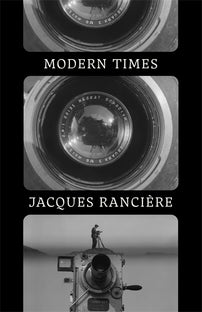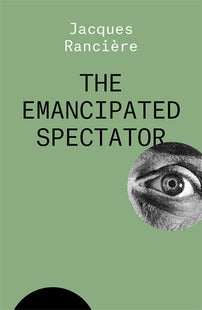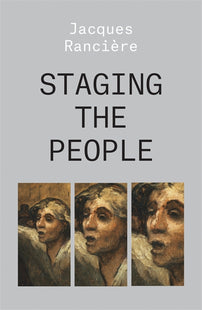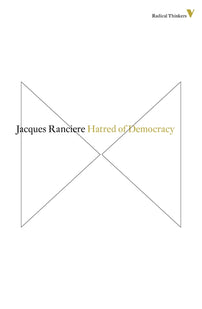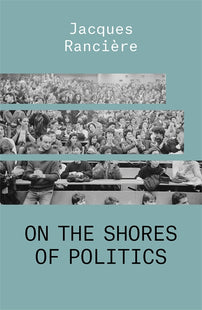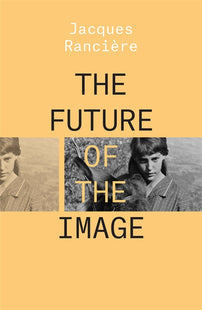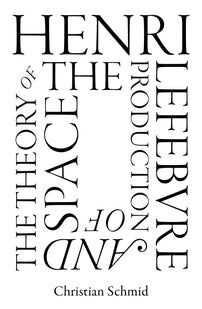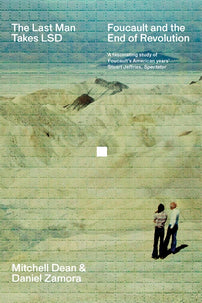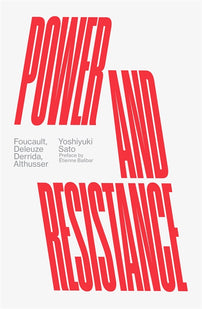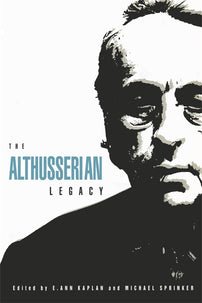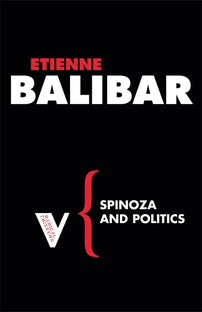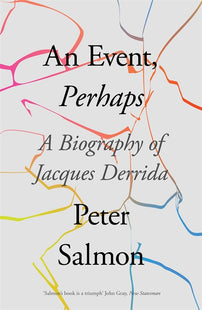The Critique of the School in Post-’68 French Thought: Interview with Jacques Rancière
In the third and final installment of this interview series, Jacques Rancière reflects on May 1968 and neoliberalism in order to contextualise his work criticising the Althusserian distinction between science and ideology, as well as to shed light on how his own philosophy developed in relation to those of Althusser, Bourdieu, and Foucault.

Interview conducted by Jun Fujita Hirose and Yoshiyuki Sato
This is an interview with Jacques Rancière on the ‘critique of the school in post-’68 French thought’. In Althusser’s Lesson, Rancière severely criticised the Althusserian dichotomy between science and ideology from a Maoist point of view, and in, The Ignorant Schoolmaster, he developed a philosophy of intellectual equality. In this interview, Rancière explains in detail the relationship of his philosophy to that of Althusser, Bourdieu and Foucault on the question of the critique of the school.
I’ll start with some general points, and then I’ll answer more specific questions. We need to periodise things. In the years 1964-65, at the time when Althusser wrote ‘Student Problems’, and in 1968, the dominant question was not the school but the university. It was the university conceived as the specific place for training the managers of a society. The 1960s in France were years of great reforming and modernising projects. The state wanted to modernise the university as part of a general modernisation of society. It organised major conferences where the dominant theme was the opening up of the university to the economic world. What was at issue at that time was the university as a specific place for preparing people who were called upon to become both teachers and managers in society. If you look at the ’68 movement, there was never, practically never any question of the school in general. The student revolt of May ’68 was a process which took place at the university, which began with problems specific to the university, which centred, first of all, on the university and of course on examinations, and which linked the specific procedures of production and verification of university knowledge with the immediate destiny of the students, which was to become teachers, technicians, engineers, and managers in society. So, the question of the school was not central, it was only peripheral. Bourdieu and Passeron’s first significant book is devoted to students, not to the school in general. It contrasts the sociological composition of the student world with the revolutionary claims of the student movement. And, if Althusser wrote his text in 1964, it was because there was a polemic within the Communist movement, with the development among students of the demand for a student salary that would make the student an active worker, an actor in the construction of knowledge. This demand by Communist students was in opposition to the position of the Communist Party, which was centred on the demand for grants for poor students. This is what Althusser responds to in the text ‘Student Problems’, and also what is at stake in the argument of Bourdieu and Passeron – the question ‘What happens at the university?’ Althusser’s answer was: ‘People are at the university to acquire knowledge.’ Like Bourdieu, he absolutely rejected students’ claims to be actors in the actual process of establishing knowledge. He maintained that the political task of Communist students was to acquire the knowledge that was the absolute condition for revolutionary action. But all this argument concerned only the university, not the school system in general.
What is interesting is the way Althusser broadens things in his 1971 text on ideological apparatuses. He sidesteps the debate on the university, shifting to an overall view of the educational apparatus. He had a reactionary position on the university question, on the student struggle against the authority of knowledge and the hierarchy of knowledge. But, now, he was trying to outflank the students on the left, by saying ‘but actually, it’s not just the university that’s in question, it’s the state’s ideological apparatuses’. If you remember that famous text, everything is a state ideological apparatus: school, sport, religion, everything becomes a state ideological apparatus. Before 1968, he denied that the university was an instrument of reproduction of the dominant ideology. Now, all institutions, all social forms, became such instruments. The fact remains that, in the 1960s, it was the university that was in question and it was through it that the question: ‘What is called knowledge?’ was posed. That’s the first point.
Second point: we must remember the very great importance of the school question – especially at the level of primary and secondary school – in the French republican model. The French Republic did indeed undertake at the end of the 19th century to create a school for the Republic, and there was a sort of very broad consensus on the part of the French left on this link between school and Republic, which assumed that the school was the place where the Republic was formed. So, there was this very strong equation between the acquisition of knowledge at school and the training of a responsible and conscious citizen, and there was very strong support for this model from the left-wing parties and in particular the Communist Party. There was broad support in the Communist Party for the thesis of the republican school as the educator of free and equal citizens, and great deference to knowledge. We can find this identification in Althusser’s texts before 1968, something very strong in the French Communist tradition, between knowledge as an institution and science as the force that sustains the fight for revolution. There was a very close proximity between the French model of the school as an institution of the state to train citizens, and the Communist view of the privilege of knowledge to train revolutionary intellectuals. There was this very close identification between knowledge as an institution and science as a guide to action. This was the situation in which Althusser first intervened in the years 1964-65. After that, there’s what happened in 1968, and there’s Althusser’s text on ideological state apparatuses, which for me was a way of ‘drowning out the fish’, of saying ‘Well, ideological apparatuses are everywhere.’ It was quite the opposite with Foucault: the school was never his problem, but knowledge was: knowledge as something that is historically constituted, a device for the construction of social characters, a device for the functioning of a society, for the production of established statements. So, there you have it, I don’t think there was any discussion on the school between Foucault and Althusser. Foucault had initially been a Communist, but, later on, he was completely alien to the Communist Party’s view of the school. Althusser, on the other hand, was a militant in a party where school, science and knowledge were untouchable divinities. Foucault had no problems of this kind. He didn’t stay in the Communist Party, he didn’t stay in France, he did his research in a completely independent way, without ever dealing with educational reforms, with the question of the school, so I believe that Foucault was never even really interested in the school as a disciplinary institution. Because it was too simple for him: ‘The school is intended to form a certain type of individual.’ Foucault was more interested in institutions like the prison or the hospital which are not seen as forming individuals, a certain type of individuality and subjectivity. In relation to that, the school was a question for the Communist Party, it was the Marxist question of the role of science, it didn’t interest him at all, he really didn’t care.
You began your published work with Althusser’s Lesson, a criticism of Althusser’s ‘Student Problems’, which was very important as an object of attack. And there is here a kind of schematisation between knowledge and non-knowledge, between the teacher and the student. So, it was already a question of the universal equality of intelligences?
At that time, I didn’t have in mind at all what I would develop later on about the equality of intelligences and intellectual emancipation. The context at the time was indeed Althusser, what we had done in the 1960s, because the article ‘Student Problems’ had been very important for us; we had really mobilised ourselves, as Communist students, to defend science. So, in the 1960s, we had been the party of science, we participated in the struggle against the whole student left, against all the student themes of criticism of knowledge, etc. We initially played the game of the Althusserian position: ‘There is science, we’re at university to learn science; we’re Marxists and we learn Marxist science first.’ This also meant that we had been completely marked by the great division, science on one side, ideology on the other. In ’68, we found ourselves in a situation where the whole society was turned upside down by these very themes of critique of knowledge, which we had considered to be the entertainment of idle bourgeois students. We noticed that these themes of critique of knowledge and the university were setting a whole country on fire. Inevitably, we were led to question the Althusserian position we had adopted and also to question the conception that bases the capacity of struggle the acquisition of knowledge. Besides, this whole period was completely against the background of the Chinese Cultural Revolution. We were in a situation where there was a new opposition: on the one hand, bourgeois science relayed by Althusserian Marxism, and on the other hand, proletarian, Maoist ideology, the capacity of the masses... At the time, I saw things in those terms, namely the context of ’68 in France and the context of the Cultural Revolution, the context of a social upheaval based on an upheaval of the hierarchy of knowledge, of the privilege of scholars, which means both the privilege of professors and the privilege of the avant-garde in the political parties. I started from there, I rethought the whole question, I reread and reinterpreted all the Althusserian texts on ideology. My position was simple: there isn’t science and ideology, there is bourgeois ideology and proletarian ideology. But also, ideology should not be understood as simply representations and discourses, but as actual apparatuses of power. At this point, I encountered Foucault’s thought, because, even when Foucault was at the university, taking part in the struggle, he was not involved in the idea of a reform of the university, he was not interested in the role of the university. What was at issue were the apparatuses: the apparatuses of bourgeois power, and then the way in which the forms of bourgeois power were taken over by the Communist apparatuses. That was the context.
And at the same time, what was interesting for me in Foucault was precisely that he showed that the education of a certain type of subject is not done simply by the school; it’s not done only by the apparatus which is destined for that, but it’s done everywhere. That is to say, the formation of subjectivity, of the subject of the capitalist world, takes place in the factory and in all institutions. The relations of power are absolutely everywhere. And ideology is not discourse, it’s first of all the power relations that place some people on one side and others on the other, that there is an order of things that reproduces itself... At that time, I was very close to Foucault, but not in the sense that Foucault brought solutions to the question of the school and the university, but rather that Foucault brought a completely different vision of the question of the relation between knowledge and power. Because the traditional Althusserian approach was: ‘knowledge is a weapon against bourgeois power’. For the students in revolt, it was: ‘knowledge is a weapon of bourgeois power’. Which was also Foucault’s position, except that power and knowledge take a much broader form in Foucault. So, from that point, I was led to rethink my work, to leave the limited framework that the Cultural Revolution provided at the time and the idea of the Cultural Revolution as a kind of anarchist revolution: the masses against the apparatus, the masses against the party, which was obviously a rather distant vision of what was happening in China.
In the early 1970s, you had already started teaching at the University of Vincennes. At the time, was the idea of Vincennes the equalisation of knowledge between teachers and students, also including workers?
No, not really. First of all, you have to realise that Vincennes was a government project, it was not at all our project, so we went to Vincennes as a sort of potential red base and not at all as a reformed university. There was a government project, there was a political force which supported it and which was the Communist Party, with the idea of the university being a place where knowledge is put at the service of the masses and the revolution. Our idea at the time was not at all to produce equality through the practices of university education. But there was, in fact, a kind of equality that existed in reality, namely assemblies where everyone had their say, where the student’s word counted as much as that of the professor. That was the beginning of Vincennes. It was not something we had planned, we did not have a project for a kind of ‘egalitarian university’. We were in a situation of political upheaval, and we were thinking in relation to this political upheaval, which was not at all the perspective of putting the university at the service of a pedagogical reform. So, there was in fact a sort of ‘moment of equality’, but it was not a moment of equality resulting from a programme. It was a fact.
Was this fact really influenced by the leftist movement of the time?
Yes, the situation was very diverse. At this university, the philosophy department was a den of leftists. But, in many departments, there was an acceptance of the idea of a university where from now on it was the leftist professors who were going to give the courses, and who were going to deliver leftist knowledge, and so on. So, there was a division between sectors of radical equality, and others that had normal functioning, simply with more left-wing professors and more modern knowledge. You could say that it was a university that was much less hierarchical than the traditional university. But, at the beginning, when people like me went to the general assemblies of other departments and tried to make a protest, we felt like intruders. There was a kind of consensus there. I went to a general assembly of psychology students and professors to try to create disorder, but I didn’t succeed at all. And even in philosophy, there was also a mass of people who were there to have philosophy lessons by left-wing philosophy teachers. For us – the radicalised teachers and students – we had the idea that real knowledge is that of those who fight against the established order of knowledge. That is to say, we had in a way adopted the Maoist thesis, that it’s the masses who know, who have knowledge, and transformed it on the basis that it’s the people fighting against the university order, against the bourgeois order in general, who know, and who must determine what we’re going to do at the university. And so, for a number of years, we were in a situation where different logics coexisted. A logic of general assembly, of somewhat anarchic equality, and then the logic of restoring normal relationships of knowledge distribution.
[book-strip index="1" style="display"]I want to continue with the question of Vincennes. I’d like to know how you experienced this recuperation of the achievements of May, the formation of an experimental university. I’d like to share the feeling you had at that time.
I think that there was a somewhat ambivalent feeling, probably at the beginning, when I was contacted by Foucault to go to Vincennes. I had to share in large part the perspective of all those Marxists who were now going to have a position at the university. I didn’t need a position at that university, because I was at the CNRS, and I could have stayed there for life. But, at the time, it seemed obvious to me that it was more interesting to be at the university, that is the first point. Secondly, when I arrived at Vincennes, we found ourselves in this tension between a party that was there to give left-wing courses to left-wing students, and another that said: ‘but no, we’re not here to give left-wing courses to left-wing students, we’re here to sabotage the university’. So, in the first year, I gave this course on the concept of ideology, which eventually became a text on the critique of Althusserian theory of ideology, and the following years I didn’t really give lectures, or the lectures had a very politicised and rather anarchic side in their form: I was working on the history of the USSR, it was about the critique of Communist apparatuses, the critique of Leninism, the critique of scientism, all in a rather anarchic context as I said earlier. So, at the beginning, I had this somewhat double feeling: on the one hand we were going to a brand new university which had been created for us and that was good. But, on the other hand, we weren’t going to be fooled, we weren’t going to play the role that was expected of us. I began to give a course on ideology, which could have been a course which simply presented the Marxist theory of ideology. And then, along the way, it deviated according to the situation in Vincennes, according to everything that was going on around it, according to the very division of my students: there were students from the Communist Party who came there, because it was a course in Marxism, and then there were Maoist students who came there, but who often said to me: ‘Today there’s a demonstration, it would be better if you came with us to take part in the demonstration rather than continue with the course.’ So there was this context of very violent tension, and during the year, my course project on ideology, on the theory of Marx, became a text of radical critique of Althusser, which was the development of what had happened in the tensions at the university, which were very violent. There was the Communist Party, it wasn’t just people who disagreed with us, it was still people who had strong arms, who eventually called on the security services of the CGT, to restore order when they saw it necessary. It was a violent context.
But, when you wrote Althusser’s Lesson, there’s a passage which says, more or less, the University of Vincennes was a recuperation of the gains of May, which the rebels weren’t really committed to. What did that mean?
It meant that Vincennes was never a pedagogical-political project for people like me. There was a government project, which can be called a recuperation project, a modernisation project. And then there was a Communist Party project for a kind of left-wing university. But the idea of people like us was not at all to go to Vincennes to make a critical university etc. That was the government project. The big battle of the first year was a battle against the new law, which precisely stipulated that teachers and students were to take part in the management of the university. We didn’t want that law. We said that it was the state that administered the university, we weren’t there for that, because it would be paradoxical. ’68 was a revolt against the university organisation, and the result would be that the leftists would run the university institutions. The big battle took place at the time of the elections for the creation of the councils, and of course we were all for the boycott. On the other hand, the Communist Party was for it. They wanted us to vote and to participate in the co-management, and it was a very violent confrontation. The first time the leftists threw the ballot boxes into the pond; the second time the Communists called in a CGT commando to control the vote and, if necessary, beat up the leftists who wanted to prevent it. This question of participation or non-participation in the management of the university was a very strong issue at the time.
And, in the 1970s, you began your work on the universal equalisation of intelligence, with The Ignorant Schoolmaster. And was this idea already in Althusser’s Lesson?
It’s more complicated than that. In Althusser’s Lesson, there is the Chinese model, the Cultural Revolution, namely the masses as masses, the great number as a mass that represents the dynamic force. After that, I worked for a very long time on working-class emancipation, on working-class archives. This confirmed to me that all forms of intellectuality were present in a world that was considered the world of work, the world of ignorance. Right through those years, I worked concretely on this knowledge, the knowledge of the ignorant. But from there I was led to think about and encounter intellectual emancipation, and to write The Ignorant Schoolmaster. When I wrote that book, I was no longer at all in the position of the Cultural Revolution, of Maoism. Maoism was like a kind of simple reversal: there are those who know and those who don’t know, that was the general scheme. In the traditional Marxist schema, there is the vanguard, that is to say the intellectuals who know, and then the workers who don’t know, who have to be directed. Maoism presented a simple reversal, namely: the intellectuals are ignorant, it’s the masses who must re-educate the intellectuals. In the end, we kept the same pattern with this simple reversal. In The Ignorant Schoolmaster, it’s completely different, because it’s the very idea of how knowledge proceeds that is different. The supposedly learned subject of the university is no longer opposed to a popular subject supposedly in possession of true knowledge. The opposition now is the intellectual capacity that is equally present in everyone. A general emancipation, which I speak of following Jacotot, in no way means that the masses will educate the intellectuals. At the same time, the question of intellectual equality is separated from the idea that there is a subject who is the repository of knowledge. Before 1968, the intellectuals were the subject of knowledge. At the time of ’68 and the Cultural Revolution, the masses were the subject of knowledge. When I came to write The Ignorant Schoolmaster, I no longer believed in a subject possessing knowledge, which also means that there is no longer a determined effect of knowledge. In the traditional Marxist thesis, one learns and once one knows, once one has the science, one can make the revolution. In a way, the idea of emancipation is the idea that there is no necessary link between knowledge, the subject of knowledge and the effect of knowledge.
If I understand correctly, you were never interested in the question of reproduction. Even if you shared the same field where reproduction was in question. But you never uttered the word ‘reproduction’. Even Foucault was very interested in this problem of reproduction, with his whole concept of discipline.
But it’s not the same. The concept of discipline is not the same thing as the concept of reproduction. The concept of reproduction means that there is a specific apparatus. If we take Bourdieu, there is a specific apparatus which is in charge of reproduction, and which functions essentially by hiding what it does. So, there is this idea of the apparatus that reproduces domination by hiding the fact that it reproduces domination. And this was not at all Foucault’s thinking. What Bourdieu was obsessed with was precisely this sort of generational mechanism: professors train students who are the future professors, and so on. But that’s not what interested Foucault. Foucault was not interested in the idea of a class dedicated to reproduction. Foucault was interested in the multitude of forms of power in society that produce both forms of knowledge and forms of subjugation. Of course, Foucault was interested, and so am I, in the way that social institutions produce behaviour. But I think that’s not at all in the logic of reproduction, it’s rather the logic of constant production and innovation. Basically, from Foucault’s perspective, power relations shift, and the mechanisms that produce subjugation shift. So, it’s completely different from the Bourdieu-like fixation on the school apparatus. Disciplinary powers are really disseminated throughout society. And then, it’s also a break with this idea of a machinery of reproduction, which functions on the basis of ignorance. Basically, Althusser and Bourdieu were very much linked to this idea of power that works because people don’t know how it works. This was not at all Foucault’s perspective. In Foucault’s perspective, subjugation is created also by creating knowledge, not by creating illusion. The themes of illusion, of ignorance, which are at the heart of Althusser’s ideology, or of Bourdieu’s reproduction, do not function like that in Foucault’s view. And that’s what I spent my time saying: ‘No, power relations don’t function through masking, misrecognition, the production of illusion. They are absolutely raw relationships.’ When I applied to the École des Hautes Études, I had Bourdieu in my selection committee. And if I wasn’t accepted, it wasn’t through any subtle mechanism. It was simply that people like him didn’t want me and said no. Academic power relations have never been based on a mechanism of dissimulation. It is simply the power of the strongest. My whole experience of power relations is like this: I am here, you are there. I think that was Foucault’s contribution to me, to say that power doesn’t function through ignorance. Power functions in the production of knowledge, in the production of behaviour, but absolutely not in this logic of a knowledge that hides itself, a knowledge that leaves people ignorant of what it does. In Foucault’s world, everyone knows something. And in the world of intellectual emancipation too, everyone knows something. The question is: what do we do with this knowledge, how does this knowledge articulate with other knowledge, how does this knowledge enter into relations of subjection. I’ve always said that if people accept a given order, it’s not at all because they don’t understand the law of the thing; on the contrary, it’s because they know. It’s because they know how it works and they fit into it through their knowledge.
Can you specify this non-presence of the question of reproduction in your own work?
I may not use the term reproduction, but I do have the idea that there are institutions that perpetuate domination. Of course, all forms of power tend towards their own eternalisation. All forms of power tend to perpetuate the power they exercise. So, what is the point of a specific theme of reproduction such as Bourdieu maintains? It was a bit like the theme of ideology in Althusser. With both of them, it’s about how it works and how it will always work. Why have I always resisted the term reproduction? It’s precisely because of that, because the term reproduction shows you how the machine makes sure that it always reproduces itself. In the end, this means that the term reproduction cancels out everything that fights against the order of domination.
That is to say, this question of reproduction and the question of sociology in your case is somewhat the same question, from which you’ve always rather kept your distance...
Yes, let’s say that all the themes of reproduction are themes that explain how the machine of knowledge reproduces bourgeois domination and so on. But we can see that this has never had any transformative effect. In fact, it has only ever had the effect of producing knowledge. Generations of students learn how domination reproduces itself. And they become intellectuals and professors who in turn explain how this reproduction works, i.e, intellectuals and professors who reproduce the machine. The science of a social functioning does not by itself provide any weapon to fight against forms of domination. It only produces people who are happy to know how domination works. In relation to this, what does Foucault say? He says that there has to be another connection, that there have to be different practices that fit together: there’s Foucault’s practice as a theorist of the penal institution, but there has to be a connection with the knowledge and practices of prisoners in revolt, which connect with the practices of jurists, doctors, social workers, etc. It’s a whole network of social practices and heterogeneous knowledges that are linked. We are no longer in the logic of reproducing the system. We are in a different logic, that of forms of power and counter-power, of knowledge and counter-knowledge that are exercised, encounter one another and shift.
Could I come back a little to your distinction at the beginning of our discussion between the university and the school in the early 1960s? Were you more interested in the question of the relationship between teacher and student?
No, when we were Althusserian students, we were absolutely not interested in the question of the relationship between master and student. We were interested in the relationship between science and ignorance or science and ideology. So, what has continued to interest me is the way in which the theme of science and the theme of mastery are articulated together. I was never really interested in how to transform teaching, how to transform the relationship between teachers and students, etc. What interested me, far more broadly, was how the authority of knowledge functions. And, consequently, what interested me was the question of intellectual equality or inequality. How social machines function on the presupposition of inequality, on the fact that someone who is in that place can never get out, on the presupposition of their own incapacity. Basically, what always interested me was to replace the question of knowledge versus ignorance with the question of capacity versus incapacity. The apparatuses of power are not made up of ignorant people, but of incapacities: incapacities that are both practical and imaginary. An order is maintained by people who say ‘but I can’t change anything’, not by people who obey because they don’t understand.
[book-strip index="2" style="display"]Incapacity for what? Incapacity to produce knowledge?
Incapacity... not to produce knowledge, but to act on their own fate. That is to say, this is what an apparatus of power produces for people who are from the outset put in the position of never being able to control their fate.
In Althusser’s Lesson, you are very critical of Althusserian thought but, at the same time, you don’t criticise the Althusserian notion of the ideological state apparatus. Can you tell us why?
It’s a bit complicated. First of all, there is a question of chronology, which is very complicated. During the winter, I did this course on ideology which led to my critique of Althusser’s ideology in which I said that ideology was not a question of discourse but of apparatuses. This text appeared, first of all, in Argentina and was only published four or five years later in French. The translator certainly passed it on to Althusser; I don’t know whether he was inspired by it. In any case, this idea was a legacy of May ’68 and not my personal idea. The fact remains that, the following year, Althusser published his text on the state ideological apparatuses, in which he plays the role of the scholar who suddenly discovers a form of domination that no one had seen before. But this text is clearly a collage. It is made up of two parts that are actually contradictory. It starts by taking up the old discourse on ideology as the capture of the subject, and then it jumps to a discourse on the state ideological apparatuses, but there is no real theoretical articulation between the two. So, when I wrote Althusser’s Lesson in 1973, I didn’t need to look at his use of ‘ideological state apparatuses’, because I thought he had simply taken up the notion in passing but without it changing his vision of ideology as the illusion of a subject. The text I was arguing against, his Reply to John Lewis, in fact continued the pure tradition of the struggle of science against ideology. On the one hand, therefore, I took up this text from 1969, which, of course, did not comment on the text on state ideological apparatuses which only appeared in 1970. On the other hand, I was placing myself in the wake of Foucault’s thinking on power and, from this point of view, the notion of the ideological state apparatus seemed to me to simply take note of what May ’68 had taught us. But this lesson, it seemed to me, had been elaborated in a much richer way by Foucault with his notion of power relations and the demonstration of how these relations functioned in institutions like the hospital or the prison. This was more interesting than saying that there were ideological apparatuses everywhere. After that, there was yet another blurring of chronology, since my book only appeared in 1975 and, in the meantime, Althusser had published his own self-criticism.
That’s very interesting. Do you know when Althusserians like Macherey, Balibar, Baudelot and Establet started to discuss the school apparatus as a target of attack? Their research group was formed just after May ’68. Did you know of this Althusserian discussion at that time?
Around 1967-68, Althusser gave his course on scientific philosophy, which was not at all in line with this logic, since there was science and then there was ideology that tried fraudulently to introduce itself. Afterwards, I heard around 1969-70 that Althusser was working on school apparatuses, but I didn’t know more about it.
At the time, you were rather close to Foucault and the Groupe d’Information sur les Prisons?
Yes, at the time, I was quite close to Foucault, in ’68 and after ’68. In all those years when I was a Maoist militant, Foucault had links with the Maoists, both close and less so, it was like Sartre with the Communists. So, I was quite involved with Foucault at that time. After that, Foucault established the Groupe d’Information sur les Prisons (GIP). I wasn’t directly involved, but it was my wife, Danièle Rancière, who established the group with Daniel Defert and Foucault. At the beginning, there were just three of them. Of course, I followed things a bit, I followed Foucault’s course at the Collège de France. So, if you like, I was very close at the time when he was working on prisons, both theoretically and practically.
Did you do any surveys on prisons with them?
No, I didn’t do any surveys on prisons. But I had myself been part, with Daniel Defert, of a group of the Gauche Prolétarienne which dealt with relations with the organisation’s political prisoners. My wife, Danielle, played a leading role in the group which carried out the investigations and which was composed mainly of militants who also came from the Gauche Prolétarienne. So, without participating directly, I was of course very close to what was done by the group which was in charge of it and in which my wife played a very active role along with Daniel Defert and a small nucleus composed of militants who came mainly from the Gauche Prolétarienne. So, I was aware of all the work even though I wasn’t personally involved.
Even in Althusser’s Lesson, there is a Foucauldian influence of the power-knowledge couple, to attack the knowledge-ideology couple in Althusser.
Yes, of course.
You knew this Foucauldian notion of power-knowledge in his course on ‘Penal Theories and Institutions (1971-1972)’? Foucault develops this notion by analysing the penal system.
This was a time when I closely followed Foucault’s approach both in his teaching and in his practice with the GIP. For me, there was at that time a profound coherence between his way of theorising the workings of power and a form of militancy. So, I was pervaded by his thinking without isolating this or that specific concept. It was a form of global interpretation which, for me, was opposed to that of the theory of ideology, an interest in thought insofar as it is invested in social functioning and not simply in theses.
To finish, I’d like to ask you another question, not really in this context. I’m a fairly good reader of your work, but, at the same time, I have a little doubt about intellectual emancipation. It’s a question taken from your answer: is it, in a way, at least partially, achieved in our capitalist society today? For example, if I may use that word, is neoliberalism a certain kind of intellectual emancipation?
I don’t think so. There is in fact a form of critique that consists in saying: intellectual equality, intellectual emancipation, is the neoliberal logic that says: ‘you’re all capable, so go ahead, do things by yourselves’. This kind of critique is similar to the themes of Boltanski and Chiapello, who were students of Bourdieu, who simply say that the anti-authoritarian ideologies of 1968 all served a renewed capitalism. Here again, it’s the same thought pattern according to which, if people participate in an order, it’s because they are deceived, in this case because they believe they are free and autonomous, and the managers play their role in the service of capital. But I believe this is absolutely not true. To say that capitalist management has taken up the themes of the students of May ’68 is a joke. Capitalist management is not about generalised creativity. The so-called ‘neoliberal’ order resembles more the panoptic order theorised by Foucault than what we always talk about, namely a world where everyone would believe they were free and participate in the order because they are given the initiative to be creative. But, in ’68, the students didn’t give a damn about creativity, about all these themes that were declared ten or twenty years later to be theirs. No, they didn’t want to be ‘creative’, they wanted to break the machine... But we created this sort of retrospective image of ’68, to say: ‘that’s what neoliberalism has achieved’. But there’s nothing liberal about neoliberalism. It’s an authoritarian order, as Foucault says. It’s an authoritarian order and it’s not at all about the emancipation of individuals who believe themselves to be masters and who collaborate because they believe they are masters. The neoliberal order that supposedly reigns is infinitely more authoritarian and bureaucratised than what we had at the time of the so-called social state. This is really not what was demanded by the rebels of ’68, nor what follows from the idea of intellectual emancipation.
But, at the same time, when we think of The Ignorant Schoolmaster, I, as a university teacher – I teach French – and here I practise what you have written. I say: ‘you have the textbook and the dictionary, you can start translating straight away, etc.’ It works very well, in fact. There could be companies of the ‘ignorant schoolmaster’ model...
There could certainly be companies operating on the principle of equality of intelligence. But they would no longer be companies belonging to the capitalist system. If we see how companies function today in this system, the way managers are treated, to say that they function according to the principles of intellectual emancipation is completely false. Managers are pressured, their time is terribly exploited, they are obliged to work on the basis of decisions that are taken completely above them by company managers who are subject to the decisions of shareholders interested only in the profitability of their investments. The margin left to people in companies, to their intellectual capacity, is extremely limited. If I take the French case as my starting point, I see that we have engineers who are over-competent. They have done considerable studies, far above what is required of them. So, they are certainly very capable of making companies work, but they are subject to managers, often imposed by politicians, who are either incompetent or competent only to generate profits. So, all they can do with their abilities is essentially prevent the catastrophic decisions of the managers from producing disaster. So, it’s absolutely not true that there is harmony between the logic of intellectual emancipation and the logic of this absolutised capitalism that is mistakenly called a liberal system.
Translated by David Fernbach
